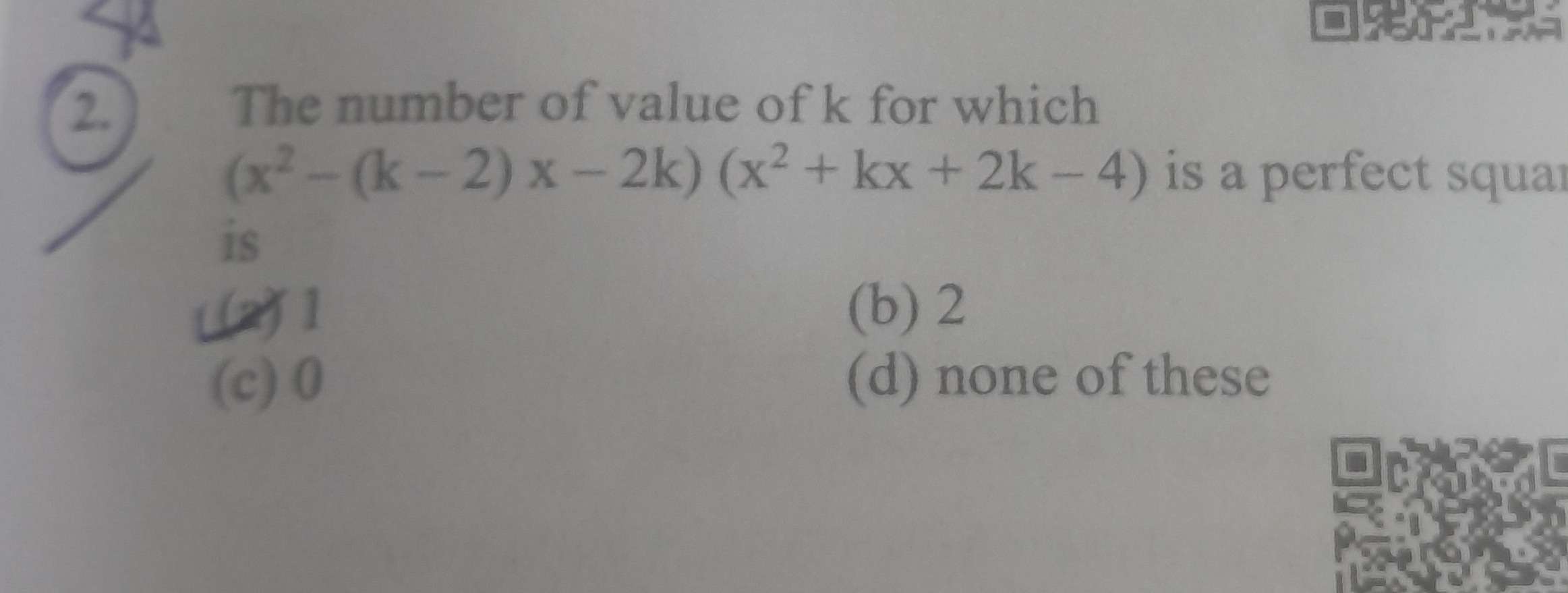Question
Question: The number of value of k for which $(x^2 - (k-2)x - 2k)(x^2 + kx + 2k - 4)$ is a perfect squa is...
The number of value of k for which (x2−(k−2)x−2k)(x2+kx+2k−4) is a perfect squa is

A
1
B
0
C
2
D
none of these
Answer
1
Explanation
Solution
Solution:
Factor each quadratic:
f(x)=x2−(k−2)x−2k=(x−k)(x+2) g(x)=x2+kx+2k−4=(x+2)(x−(2−k))Thus,
f(x)g(x)=(x+2)2(x−k)(x−(2−k))Let
h(x)=(x−k)(x−(2−k))=x2−2x+k(2−k)For f(x)g(x) to be a perfect square, h(x) must be a perfect square, i.e.,
h(x)=(x−1)2=x2−2x+1.Equate constant terms:
k(2−k)=1⇒2k−k2=1⇒k2−2k+1=0⇒(k−1)2=0.Thus, k=1.
Answer: 1 (Option (a))
Explanation:
Factorized both quadratics; observed common factor (x+2) and deduced that the remaining quadratic must be a perfect square, leading to k=1.
